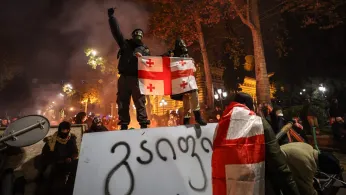
It is now illegal to publish ‘fake news’ or criticize the government online
What happened
This week, the Duma passed two new laws limiting freedom of speech. One punishes those publishing fake news, the other punishes those spreading defamatory information about the authorities. There is nothing in either law about how information will be classified as defamatory or fake, nor about the mechanisms of enforcement. It is also unclear how many ‘fake news’ items the law enforcement agencies will be able — or willing — to identify.
- According to the new law, if communications watchdog Roskomnadzor accuses an online media outlet of spreading fake news, the organization must immediately delete the information in question, or face a ban. News aggregators and traditional media – print, radio and TV – are not affected. However, bloggers and ordinary social media users will not find it easy: for spreading fake news they could be blocked without warning. And that is not all. For spreading fake news, individuals face a fine of $450 to $1,500 and, for repeat offences, up to $4,500. If the fake news leads to the death of a person or “large scale disruption to society” the fine can be up to $6,000. Companies can be fined up to $22,0000.
- Fake news will be identified by the General Prosecutor’s Office “on the basis of news reports and the nature of the events.” The law suggests categorizing “fake” information as that which threatens the lives or health of people, disrupts the social order or threatens to impact the work of credit organizations and industry. This all provides huge scope for interpretation and raises the question of the how online media outlets will work with sources: how can they prove information from anonymous sources isn’t fake (particularly if the information casts the authorities in a negative light)?
- The law about criticizing the government is no more specific. The “defamatory information” it punishes includes “insults to human dignity” and a “clear lack of respect for society, the state, state symbols, the constitution, and government bodies.” Fines for such offenses vary from $400 (for first time offenders) to $600 (for repeat offenders). Repeat offenders can also get up to 15 days jail terms.
- For now it’s unclear how the new laws will work. But similarly vague laws have been interpreted very loosely. A recent law “on likes and shares” has seen cases over a “like” on a photo critical of Russian military action in Ukraine, and for sharing a meme about Muslim women whose hijabs get in the way of them eating noodles. At first the law was supposed to carry a prison sentence, but, just before it was passed, Putin altered it so that first time offenders can just pay a fine and only repeat offenders can be jailed.
Why the world should care
We have written several times about attempts by the Russian government to copy the Chinese model and build ‘sovereign internet’ in Russia. If they are successful, not only will Russia cut itself off, but the world will have little idea of what is going on. For now, the great Russian firewall only exists in officials’ dreams. But laws limiting freedom of speech online help Russia move closer to this goal just as much as more technical measures.



